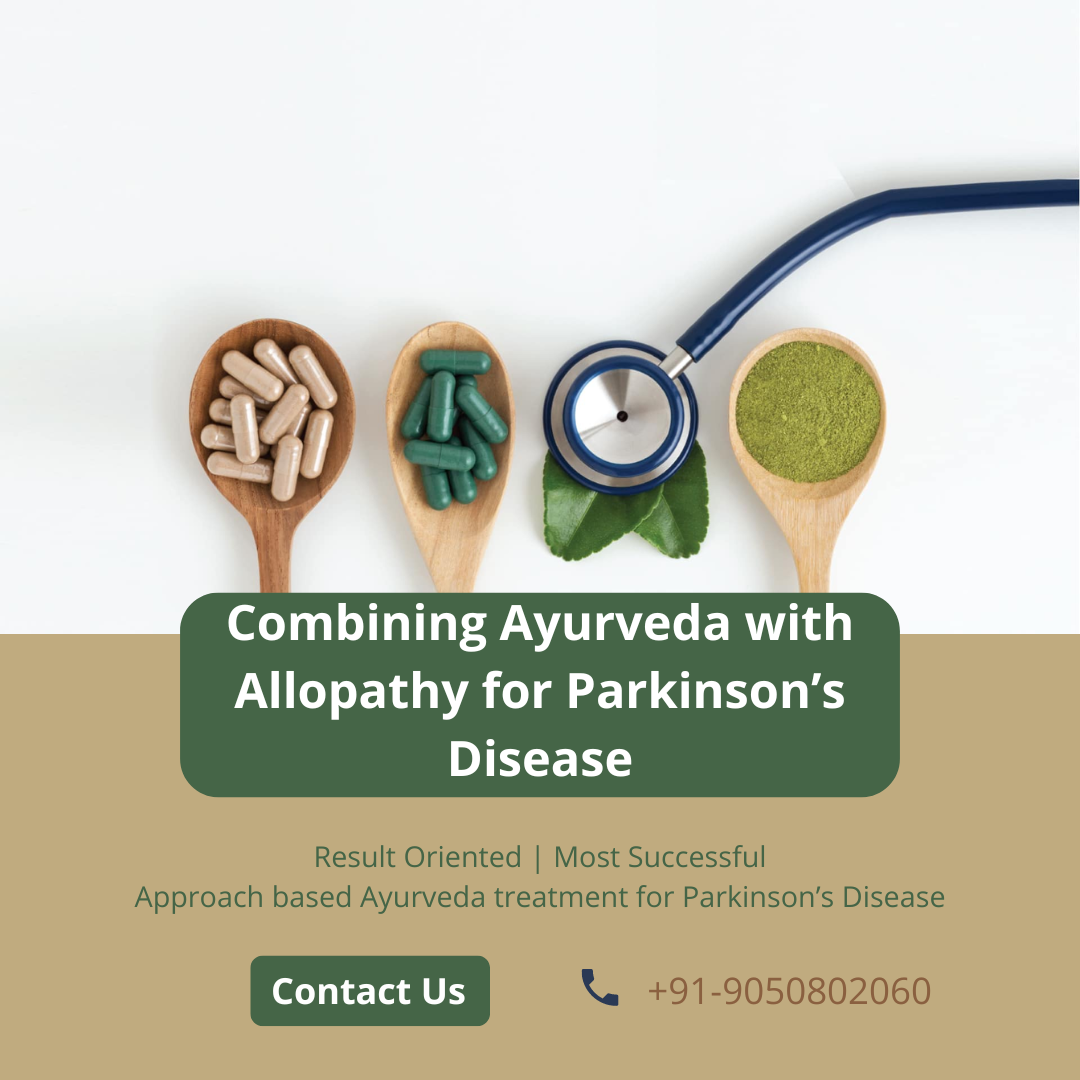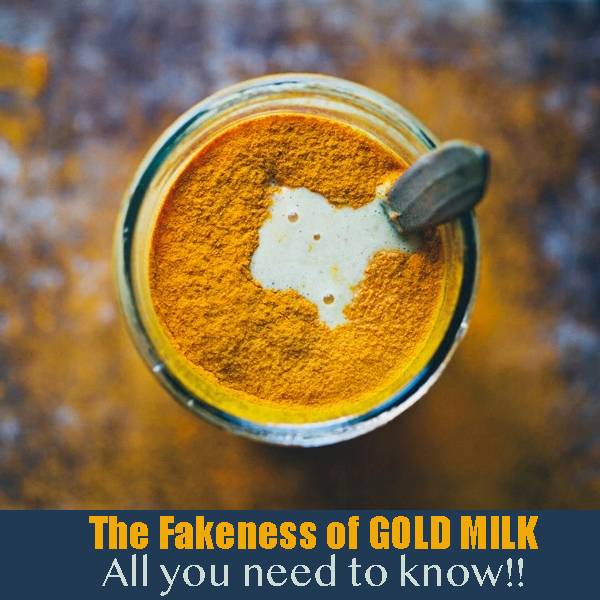Combining Modern Medicine and Ayurveda for Parkinson’s Care

You are also suffering with same pattern where your body is not helping you even with adequate dosages of the Levodopa? Then this article is for you. You need to know how can you integrate the modern day quantified medicines with timeless wisdom of Ayurveda. We will discuss the two approaches and later on the benefits of combining modern medicines and ayurveda for Parkinson’s care. How Integrative approach to the Parkinson’s disease treatment can add value in the life, will be clear from the article.
As we all know, Parkinson’s disease (PD) is a chronic progressive neurological disorder that primarily affects movement. Parkinson’s disease is characterized by tremors, rigidity, bradykinesia (slowness), and postural instability. This all causes significant challenges with quality of life for those affected. Although modern medicine has advanced in pharmaceutical and surgical deal with the symptoms of Parkinson’s disease. Though the integration of Ayurvedic therapies can lead to a more holistic approach care of the patients suffering with Parkinson’s Disease. It reaps benefits and provides a comprehensive approach to the management of the disease . . . .
Modern medicine: Current approaches to the management of Parkinson’s disease
Medicines are the primary method for the treatment of PD patients. There are certain new surgical procedures like DBS (Deep brain stimulation). The most commonly used salts for this condition are-
- Levodopa/Carbidopa: As we know the problem happens because of the absence of the Dopamines. The most effective treatment for the symptoms of Parkinson’s disease levodopa converts dopamine in the brain, while carbidopa prevents its premature metabolism from the brain.
- Dopamine agonists: Agonist means- which behaves like one. These medicines, mimic the effects of dopamine in the brain and can be used alone or in combination with levodopa.
- MAO-B inhibitors: On one side, brain is replenished with dopamines. On other side, there are salts which help in elimination of dopamines from the body. These inhibit the breakdown of brain dopamine by inhibiting the enzyme monoamine oxidase B (MAO-B).
- COMT Inhibitors: COMT inhibitors help by prolonging the effects of levodopa therapy by inhibiting the enzyme that breaks down dopamine.
For patients with complicated and advanced stages of Parkinson’s Disease, surgical options like Deep Brain Stimulation (DBS) can provide significant relief. DBS is about implanting electrodes in specific brain areas to regulate abnormal impulses. But these procedures are not much helpful in many of the cases.
Ayurveda: An Ancient System of Healing
Approach of Ayurveda about treatment of Parkinson’s disease is based on the theory of Doshas. Balancing and bringing back the doshas to normal state is the only method to help the patients. We have worked with more scientific approaches with the doshas at Sukhayu Ayurved for treatment of Parkinson’s Disease. The main dosha with PD is Vata. But this is not alone. The other two doshas are also involve in the process of the disease. We
We work on the concept of Avarana- where brain tissue stops responding to the medicines or dopamines.
- Herbal Remedies: Ashwagandha, Brahmi, and Mucuna Pruriens are commonly used to support the nervous system and manage symptoms.
- Dietary Adjustments: Foods those aggravate or disturb te normal behaviour of the Vata dosha are not good for this condition. The too much “roughage/fibre”, cold, dry foods- these are the foods which Ayurveda advises to avoid in case of Parkinson’s disease.
- Lifestyle Modifications: Add everything which can lower down the stress and bring more activity to the body. It can be simple Yoga Asans, Mudras or a gentle morning or evening walk.
- Panchakarma Therapy: The famous, structured program for detoxification of the body. Along with detoxification, these five processes aim to replenish the body too. So we balance the homeostasis of the body, in simple terms with these.
The Benefits of an Integrated Approach
The bridge between approach of modern science and ancient wisdom, connects two sides. And this brings completeness. With more “wholistic” approach, response of human body improves and helps in many ways. Here is how Integrative approach to the Parkinson’s disease treatment with Combining Modern Medicine and Ayurveda for Parkinson’s Care:
1. Symptom Management
As soon as I take the medicine, I feel relieved. But dosages are increasing so are the complications of Parkinson’s disease. And we have discussed this dose dependency and complications of increasing symptoms in other blogpost-
Ayurveda has answer to this complex condition. Because Ayurveda works on the different layers of the disease rather than just on addressing of the “availability” of Dopamines. Generally in clinical practices it is noticed that when we take Integrative approach to the Parkinson’s disease treatment. On one side the relief in symptoms come very quickly and on other side your neurologist will keep on reducing the dosages of your medicines. The confidence in walk returns, control over tremors appear, voice becomes clear. And non-motor symptoms like- constipation improve multifold.
2. Improved Quality of Life
Because through Ayurveda we work on the multiple dimensions therefore treatment adds more value to the quality of life. As I always comment- “Ayurveda is not about adding years in life, it is about adding life in years”. The same outcome we assure for our patients of Parkinson’s disease with integrative approach.
3. Individual Treatment Plan
Because of the “quantified” nature of the western medicines all treatments and medicines are more generalised. Like the modern day tailoring they believe to stitch a size which will suit almost everyone. Ayurveda is a bit different here. We work on the concept of individualisation.
You might have seen that many people praise- Krauncha Seeds for PD but when you used it didn’t work that good. Reason is simple- your biological process needs something else to control the condition. In Integrative approach to the Parkinson’s disease treatment when this kind of interventions are done- this helps patients with better results and better response to the medicines.
4. Support for the Nervous System
Ayurveda is a the science of “age” and when it comes to slow down the process of aging (we cannot reverse aging)- it helps properly. In all neurodegenerative conditions like PD, Ayurveda helps in this core pathological process thus gives proper results in the treatment.
On one side- Allopathic medicines give you timely relief by helping the nervous system on other side Ayurveda makes sure that reversal of pathology will take place. This is the reason Integrative approach to the Parkinson’s disease treatment works well.
Case Study: Integrative approach to the Parkinson’s disease treatment.
Mr. Govardhan Sahu a patient in early 60s came to us with following symptoms-
- Resting tremors – hand, feet and jaw
- Bradykinesia
- Repetitive falls to back side
- General Rigidity of the body
Patient was taking certain medicines regularly since last 15 months. Earlier he started with the Levodopa with Carbidopa 125 mg twice daily. When Mr. Sahu came to us he was on 275 mg for the same combination and that too for 4 times in a day, every 3-4 hours. So the good window for the relaxed symptoms was only 1 year. We started the treatment in 2022 Dec.
- Modern Medicine: Levodopa with Carbidopa combination 275 mg.
- Ayurveda: Cap Neurosattava (For Aavarana), Brahma Rasayana (Rasyana chikitsa), Brahmi, Ashwagandha etc.
- Panchakarma Therapies:
- Basti Chikitsa: Administration of medicines through Anal route, with Medhya and Rasyana medicines.
- Udvartana: To remove the Kapha blockage
- Shalishashtika: Poultice made up of rice and herbs.
- Pizhichil: Oil bath
- Shirobasti: Oil pooling on the scalp.
These procedures were done in 3 sessions- 21 days, 15 days and again 15 days.
Presently- Sahu Sir is taking single dosage of Syndopa plus and symptoms are under control upto 70%.
Conclusion
Integrative approach to the Parkinson’s disease treatment to manage Parkinson’s Disease, addressing not just the symptoms but also the underlying imbalances and overall health of the patient. By combining the strengths of both systems, patients can experience improved symptom management, enhanced quality of life, and a more personalized care plan. For those interested in exploring this integrative approach, consulting with both a neurologist and an experienced Ayurvedic practitioner is essential to develop a comprehensive and effective treatment strategy. Visit Sukhayu Ayurved for more information on how Ayurveda can support your journey in managing Parkinson’s Disease.











